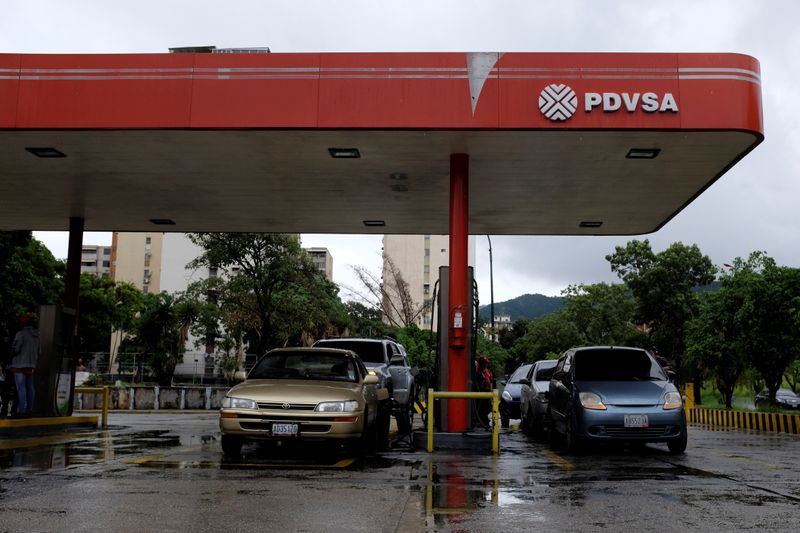By Deisy Buitrago and Luc Cohen
CARACAS (Reuters) - Representatives of Venezuela's private oil service companies have proposed the government loosen restrictions on gasoline imports and sales, as the country faces its worst motor fuel shortages in more than a decade.
In a public statement this week and in discussions with officials of President Nicolas Maduro's socialist government and state oil company Petroleos de Venezuela [PDVSA.UL], members of the Oil Chamber grouping of contractors and service companies proposed allowing private firms to import gasoline, according to three people with knowledge of the talks.
The proposal faces many obstacles, not least generous subsidies that make gasoline essentially free at the pump in Venezuela, which would complicate efforts by private companies to turn a profit. A 2008 law also reserves activities related to liquid fuel supply, including gasoline transport, to the state.
"It is necessary, but it is not viable," said one of the people, who spoke on the condition of anonymity.
It was not clear which companies, if any, are planning to import and sell fuel, which has been exclusively handled by PDVSA for over a decade.
The push comes after weeks of acute gasoline scarcity, as PDVSA's refineries produce at less than a 10th of capacity after years of underinvestment and lack of maintenance, and as U.S. sanctions complicate imports.
That has left some farmers unable to bring their crops to market, paralyzed food transport into Venezuela's cities, and forced some doctors to wait in line for gasoline for hours just to get to work at hospitals as the country combats the outbreak of the new coronavirus.
"Fuel is indispensable for the health and food sectors, and so we must temporarily deregulate the internal market and allow the importation of fuels from various external private sources," the Zulia chapter of the Oil Chamber wrote in a statement published on Twitter on Wednesday.
PDVSA did not respond to a request for comment.
Oil Chamber president, Reinaldo Quintero, said on Saturday the Zulia chapter's proposal did not represent the official position of the overall group, which was supporting PDVSA's plan to improve the situation by repairing refineries.
"We will always propose ways to improve the oil industry," Quintero said in a telephone interview.
A source at PDVSA said the company was wary of the proposal and preferred to focus on ongoing efforts to revive output at the company's refineries. Officials have pledged to restart gasoline production at the 146,000 barrel-per-day El Palito refinery.

"It will take some time," Rafael Lacava, the Maduro-aligned governor of Carabobo State, where El Palito is located, said in a video posted on Twitter. "But I am sure that sooner rather than later, we will be normalizing the fuel market on the streets."